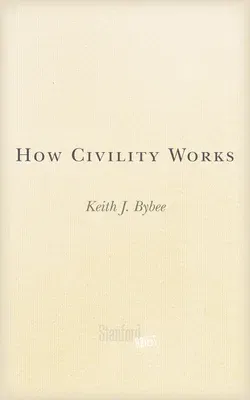Is civility dead? Americans ask this question every election season, but
their concern is hardly limited to political campaigns. Doubts about
civility regularly arise in just about every aspect of American public
life. Rudeness runs rampant. Our news media is saturated with aggressive
bluster and vitriol. Our digital platforms teem with trolls and
expressions of disrespect. Reflecting these conditions, surveys show
that a significant majority of Americans believe we are living in an age
of unusual anger and discord. Everywhere we look, there seems to be
conflict and hostility, with shared respect and consideration nowhere to
be found. In a country that encourages thick skins and speaking one's
mind, is civility even possible, let alone desirable?
In How Civility Works, Keith J. Bybee elegantly explores the "crisis"
in civility, looking closely at how civility intertwines with our long
history of boorish behavior and the ongoing quest for pleasant company.
Bybee argues that the very features that make civility ineffective and
undesirable also point to civility's power and appeal. Can we all get
along? If we live by the contradictions on which civility depends, then
yes, we can, and yes, we should.

